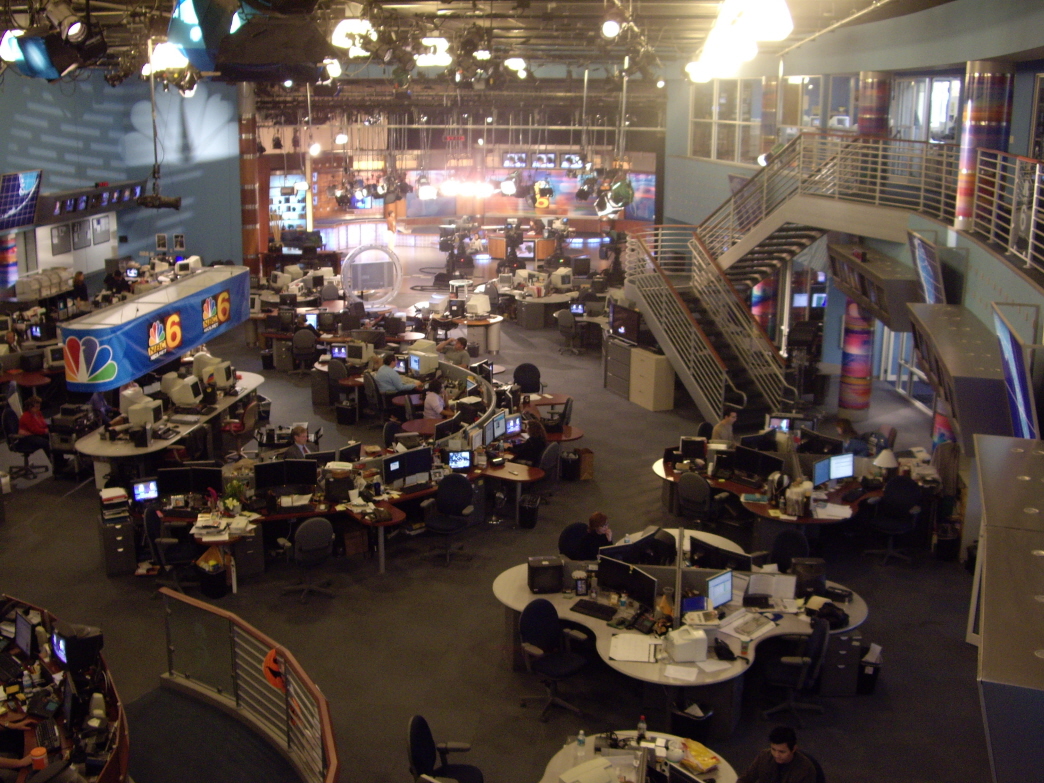This article has a set of discussion questions tailored for classroom use. Click here to download them. To see a full list of articles with discussion questions and other resources, visit our “Educational Resources” page.
In a statement to the Washington Post earlier this month, Democratic National Committee Chairman Tom Perez announced that Fox News will not be allowed to host a debate for the 2020 Democratic Party primary election cycle. The DNC’s decision was based in part on Jane Mayer’s New Yorker article accusing Fox News of acting as a propaganda machine for President Trump’s administration. Mayer’s article points to frequent cross-hiring between network management and Trump’s campaign and White House administration, as well as the president’s consistent attention to shows like “Fox and Friends” to demonstrate the close relationship between the administration and the media outlet. The article even includes a quote from professor Nicole Hemmer, who calls Fox News “the closest we’ve come to having state TV.” Implicit in Hemmer’s statement and Mayer’s article is the premise that a state-run media network would be a bad thing for the United States. Leaving aside the debate over whether Fox News or any other news organization is disseminating propaganda, it is worth delving into why (or perhaps even whether) we should be worried about a state-run media in the first place.
A state-run news organization would seem to run counter to the values which inspired the First Amendment of the United States Constitution. The American Civil Liberties Union specifically highlights the role of the press as a critic and watchdog of the government in service of the people. Investigative journalism is a necessary component of democratic society. The research undertaken by reporters into not only the government, but also businesses and wider societal trends helps the general public understand the world and current events. It seems likely that an organization funded, overseen, or otherwise closely involved with the government would experience a conflict of interest precluding the total fulfillment of this watchdog duty. Certainly, a country with only state-run media would be missing the opposition viewpoint critical to the democratic process. Without the full breadth of information, the general public would be unable to make informed decisions about the government, therefore depriving the people of the agency of self-governance that defines democracy.
The United States can look to other countries for models of what state-run media might look like. Russia, for instance, is widely regarded as operating state-controlled media: two of the biggest television channels, Channel One Russia and Russia-1, are controlled by the federal government, and the English-language network RT is also funded by the government. These media outlets tend to support the policies of the government, and some have accused these organizations of acting as propaganda machines for the Kremlin. In particular, RT has garnered attention because it is directed to a more global audience; while critics say it is designed to generate international sympathy for misguided or dangerous policies of Vladimir Putin’s administration, the network claims it is simply providing an alternative viewpoint to the largely anti-Russia opinions of other international news networks.
Many regard Russia’s control of media and restriction of free press as problematic. What is it about the media situation in Russia that constitutes a breach of ethics? Is it the presence of state-run media, or is it the absence of prominent independent media outlets? Perhaps the more pressing concern is the active legal restrictions on journalists who attempt to look too closely at issues like corruption. Journalists have been banned from Russia, sentenced to time in prison, and even attacked and killed, often under suspicious circumstances. These are obviously more severe threats to press freedom than state-run media, and one could argue that in the absence of such dire conditions, a state-run news outlet would not be an ethical violation in itself.
Being government-sponsored does not guarantee that a news network will collaborate closely with the government. One of the most well-regarded news organizations in the world is the British Broadcasting Corporation. While the BBC was founded by a royal charter and remains under the auspices of the government of the United Kingdom, its charter explicitly calls for the corporation to be “independent in all matters” and a provider of “impartial” services. One could argue that true independence is impossible while the future of the organization is determined by the government, but the presence of other, non-state news outlets in the United Kingdom suggests a much wider latitude of press freedom than in Russia.
Our fear of state-run media seems to stem from a fear of an Orwellian dystopia in which objective truth is hard to come by and public narratives are constantly malleable. The tendency towards a “post-truth” world seem ripe for sinister developments like manufactured consent, wherein public opinion is gradually and subliminally bent to suit the aims of policy makers and other power players. These fears seem even more troubling in the era of “fake news.” President Trump’s use of the phrase to discredit news outlets like CNN, as well as his suggestion for a state-run cable TV network, could be construed as part of a drive towards more extensive state control of the media.
But is there an upside to state-controlled (or at least state-funded) media? For several years, observers have been bemoaning the rise of clickbait — stories and headlines designed to grab immediate attention, often at the expense of in-depth reporting and thoughtful investigation. The primary motivation for this trend is to ensure a profit in the digital era. Free from the need to turn a profit, a state-funded media outlet would theoretically be better equipped to cover substantial, potentially unpopular stories. This is the mission of America’s Corporation for Public Broadcasting, a government-financed organization that provides some of the funding for public radio stations and other services.
All of this does not absolve Fox News from its duty to provide impartial coverage of government policy. Fox News is not openly an arm of the state: any connection or cooperation between the network and the Trump administration is covert. When it is perceived as an impartial, private corporation, any criticism or praise delivered by the organization to the government is taken as objective assessment, rather than propaganda. But precisely because it is perceived as a free agent, the network also has a duty to fulfill this expectation and act impartially; anything else would be misrepresentation, unethical not only to the extent that lying is unethical, but more so because of the special duty of the press in maintaining the democratic system. At the same time, it is difficult to ascertain true impartiality. The determining factor is intent, rather than outcome. An impartial organization coincidentally supporting the administration on every issue and a partial organization actively colluding with the administration would look practically identical to an outside observer.


